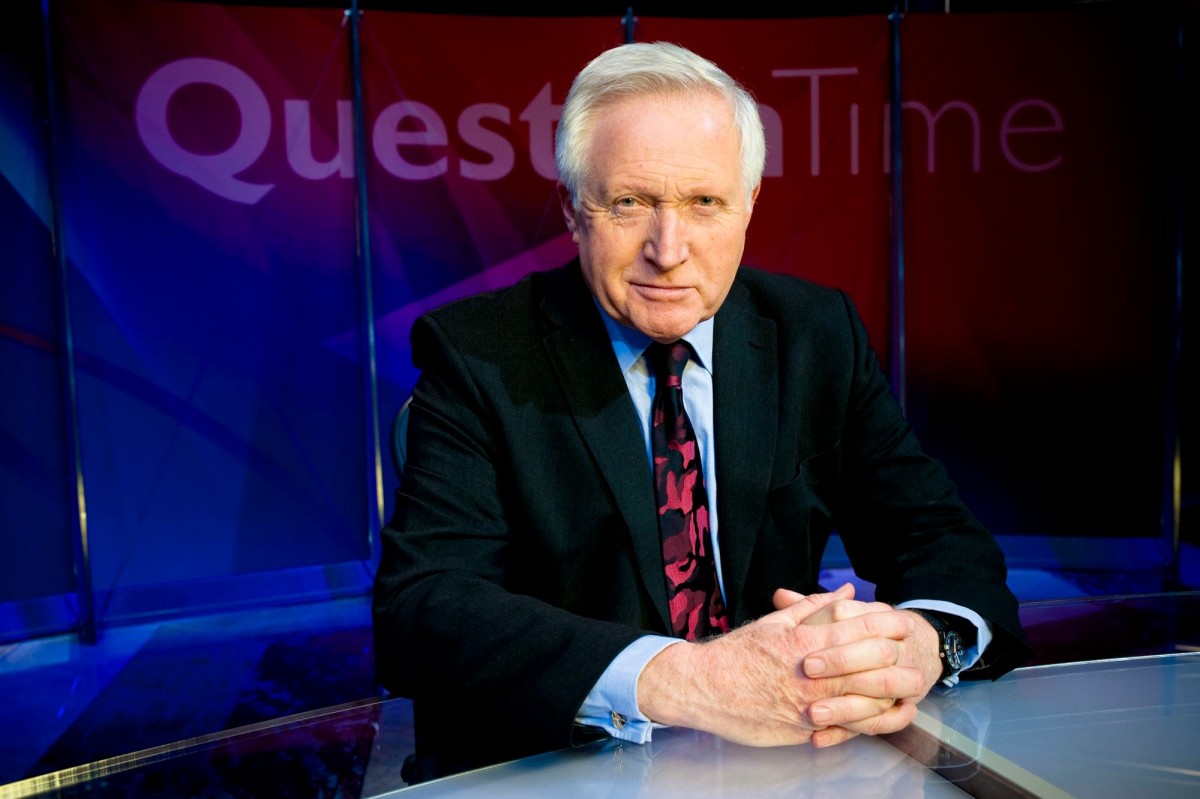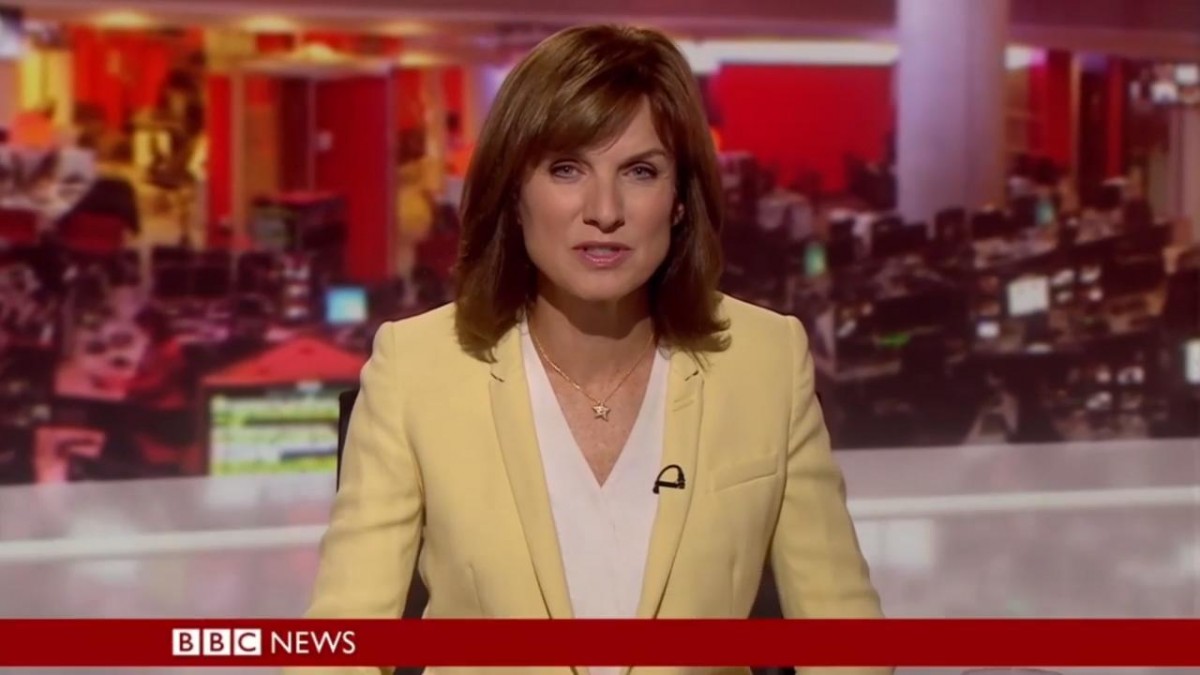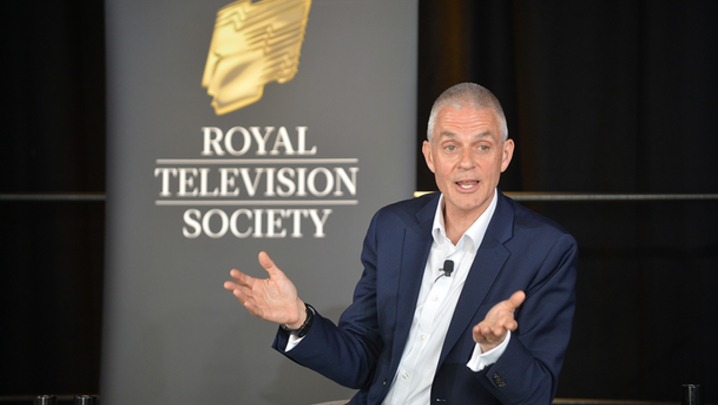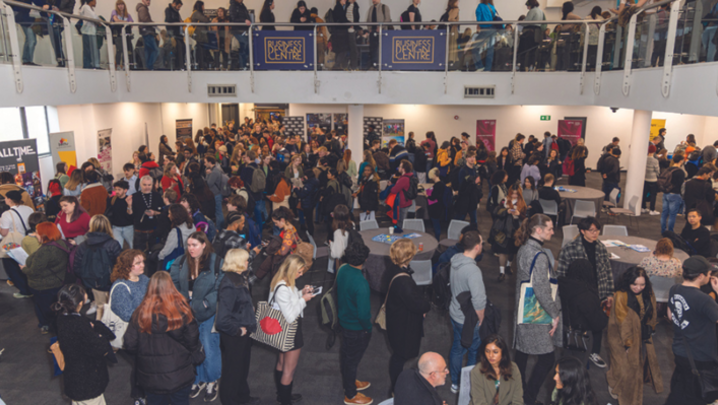Lisa Campbell profiles Fiona Bruce, whose new role as presenter of Question Time is already proving controversial.
Whoever replaced national treasure David Dimbleby as host of BBC flagship Question Time faced a daunting prospect. Having fronted the show for an age-defying 25 years, he cast a long shadow, and there was intense pressure on the corporation to pick someone who wouldn’t be overpowered by the role.
Fiona Bruce was regarded in some quarters as an unlikely choice to succeed such an iconic broadcasting heavyweight. Viewers didn’t have to wait long for her baptism of fire.
It came during her second week in charge of the high-profile politics show and spoke volumes about how, in the age of social media, presenting Question Time requires very special skills.
The BBC received more than 100 complains after Bruce had queried panellist Diane Abbot’s assertion that Labour was “level pegging” with the Conservatives in the opinion polls by saying “you’re behind, Diana”. Her mistake lit up Twitter.
The presenter subsequently put the record straight in the following week’s programme. “There was some discussion about opinion polls.… I was talking about a poll which came out on the day of the programme, which suggested the Conservatives were ahead.

“The Shadow Home Secretary mentioned some other, earlier polls which showed Labour in the lead and we should have made that context clear, and I’m really happy to do that now.”
When news of her appointment emerged, the BBC News at Ten presenter and Antiques Roadshow host confessed that she had “not felt this nervous in a long time”. She added that the job felt “massively exposing”, but she would try not to let her nerves show.
To the outside world, Bruce was the epitome of calm during her debut appearance on 10 January.
To those who know her well, however, Bruce’s initial fears were clear. “Having worked with Fiona for years. I could see she was nervous to begin with but, being the ultimate professional, she soon hit her stride,” said one news executive.
Bruce’s trademark composure was not the only quality that set her apart, according to a BBC insider who was part of the pilot process.
In what was affectionately described as Question Time Idol, shortlisted hosts were put to the test with a panel of politicians and pundits before a 120-strong audience.
"The tricky thing is, it’s a programme about the audience, it’s not an interview programme."
“It was a formidable shortlist and it’s very hard to separate people in terms of CV, but the pilots allowed us to compare.
The tricky thing is, it’s a programme about the audience, it’s not an interview programme,” says a Question Time insider.
“So you have to keep letting people in, without letting the panel evade the question. It was a balance David struck brilliantly and Fiona instinctively got that.
“The pilot was an enlightening, entertaining, watchable hour, everything you could want from Question Time.”
Despite this, as the first female host in the show’s 40-year-history, there was the inevitable Twitter backlash, as well as criticism from certain sections of the press.
They questioned Bruce’s political prowess and journalistic rigour, and highlighted the fact that the shortlist was almost entirely female: Emily Maitlis, Kirsty Wark, Victoria Derbyshire, Samira Ahmed plus what was described as one “token” male, Nick Robinson.
All of which only added to the pressure. “It was as though, for some, a gender-themed sword of Damocles had been hovering over Bruce’s debut – with her not just representing herself, but all females who have the audacity to take a man’s place,” wrote Barbara Ellen in the Observer.
Bruce describes herself as a feminist from her university days at Oxford, which she attended 1982-86. Arriving there from a comprehensive in south-east London, she was aware of class and how “chippy” she was about it.
This feeling of not fitting in was funnelled into feminist activism, which included her successfully making the case for a female tutor to whom female students could turn for support.
The initiative was subsequently rolled out at every Oxford college.
Since then, she has demonstrated her feminist viewpoint personally and professionally – most of the time, at least.

She famously challenged Sir Alan Sugar on an episode of The Money Programme about his view that women should declare childcare commitments to a potential employer.
In 2017, she joined other BBC presenters in signing the letter to Director-General Tony Hall calling for equal pay.
However, she did not come out in support of presenter Miriam O’Reilly’s ageism claim against the BBC in 2009, with O’Reilly going on to win her case against former BBC One controller Jay Hunt in 2011.
As an aside, one former colleague recalls Bruce’s “gleeful acceptance” of her Rear of the Year title in 2010, something which, the following year, she admitted was “the most hypocritical, ridiculous, ludicrous thing” she had ever done.
This time, however, Bruce has been entirely robust. In a recent interview in the Times, she shot down Andrew Billen’s line of questioning with this retort:
“I assumed that when I got interviewed about this that at least one person would say to me, ‘Do you think you got the job because you’re a woman?’
And a) I don’t; b) I’m insulted by the suggestion; and c) men have been getting jobs because they’re men for centuries. And I don’t recall a) that question ever being asked of them, or b) hearing a peep out of them about it.”
Questions concerning gender are not the only negative thing Bruce has faced since winning the prestigious Question Time role.
Many assumed that the BBC would appoint a journalist with a more traditional political background. At 4-1, the bookies’ favourite was Kirsty Wark.
Indeed, following Bruce’s appointment, there were raised eyebrows among some news and current affairs producers in the TV industry.
Some press commentators suggested that she would be a soft touch. Few, however, have been as harsh as Amanda Platell, writing in the Daily Mail: “Question Time is the toughest of gigs for the presenter. It doesn’t require poise but cunning, political nous and a ferocity and command I suspect Fiona does not possess.
“It is, and should be, forensic, fierce, formidable. That’s not Fiona Bruce. She’ll be a butterfly broken on the unrelenting wheel of politics.”
As one colleague states: “Perhaps because of Antiques Roadshow, people seemed to have forgotten that she’s a journalist and has worked on Newsnight and Panorama. Either that or the talk of the ‘soft touch’ was just sexism.”
Bruce has been employed as a reporter on a range of news and current affairs programmes. She began her BBC career at Panorama as a researcher after meeting then-editor Tim Gardam at a wedding.
Her other reporting roles include working on Breakfast News and BBC South East plus current-affairs series such as First Sight, Public Eye and Real Story.
In 1999, she became a presenter on the BBC Six O’Clock News, then the Ten, as well as co-presenting Crimewatch.
Famously, in 2001, Bruce became the first female presenter to work on the BBC television general election results programme.
In 2008, she took on the role that she’s most famous for, hosting Antiques Roadshow, now in its 41st series.
The BBC executive who appointed Bruce as Dimbleby’s successor, director of news and current affairs Fran Unsworth, speaking before Bruce’s Question Time debut, said:
“We chose her because she combines the authority of a newsreader with the warmth and personality which comes with interacting with Antiques Roadshow audiences over the years.
“I would also nail any perception that she is a bit of a lightweight. The papers reported that the BBC ‘wanted a softer feel’, which is rubbish.
"She is a proper journalist. It is just that she hasn’t been immersed in the Westminster scene.”
Her distance from Westminster is seen as a strength by another BBC journalist, who said: “David refused to hang out with politicians and kept himself away from that world. He was never a political correspondent.
“He saw it as his job to be on the audience’s side. You need to know enough to not be bamboozled, and Fiona is as sharp as a tack. You don’t need to be in Westminster to know what politics is about.”






